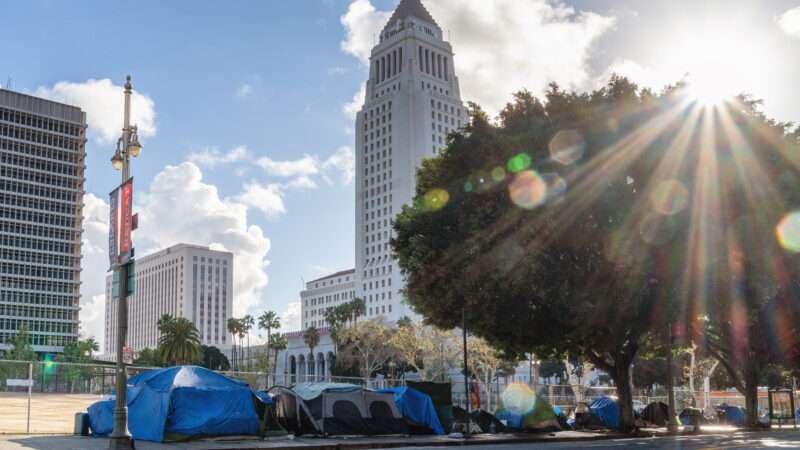
Los Angeles has been called the "homeless capital of America" by housing advocates. More than one in 10 homeless Americans reside in Los Angeles County. In 2016, the city's voters overwhelmingly approved Proposition HHH, a ballot initiative that would put $1.2 billion toward building thousands of housing units for the homeless and at-risk, plus facilities which could treat addiction, mental illness, and other potential causes of homelessness. Now, with more than five years elapsed, the program is falling far short of expectations.
According to a new city audit, the program is "still unable to meet the demands of the homelessness crisis," and the total number of housing units built so far is "wholly inadequate." While the project is more than halfway to its projected completion date, the city is nowhere near halfway done building, and costs are skyrocketing. The initiative was pitched as delivering 10,000 housing units, but so far, only about 1,100 have been built. And even though more than 87 percent of the planned units are studio or one-bedroom apartments, the audit found that some units are costing more than $700,000 to build, with some costing as much as $837,000 apiece.
Or, as the city's mayor, Democrat Eric Garcetti, put it in a tweet, L.A. is "producing more units than promised, at a lower cost than expected."
In December 2019, Reason TV reported that after three years, only 1 percent of the total Proposition HHH housing stock had been built, and despite initially budgeting for each housing unit to cost around $350,000, the costs were exceeding $500,000.
Now, costs have only continued to increase, casting serious doubt on whether it is even possible for the city to achieve its goal.
The issues California faces with these housing units are the same ones it has always faced. The pandemic may have increased the costs of labor and materials, but California's cities have a long history of regulatory hurdles which artificially inflate the costs of not just construction, but also rents and mortgages. Regulations like minimum lot sizes or mandatory parking spaces make housing more expensive and price people out of the market, which further exacerbates the homelessness problem.
If L.A. truly wishes to tackle homelessness, then it should relax its zoning restrictions. This would allow more units of housing to be built more easily and without as much hassle as is currently involved.
The post Audit: L.A. Spending as Much as $837,000 per Unit of Housing for Homeless appeared first on Reason.com.





